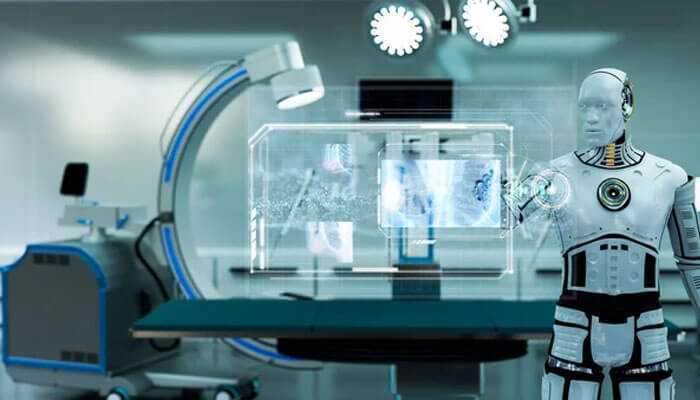Artificial intelligence has recently transformed healthcare operations. This is particularly true for AI-powered chatbots. It can help with everything from answering healthcare inquiries to administrative tasks. Despite the rising significance of AI in healthcare, there are still misconceptions concerning chatbots. In this blog, we will clear up seven prevalent myths about healthcare AI chatbots and explain what they can and cannot perform.
1. Healthcare AI Chatbots Will Replace Doctors
Some feel that healthcare AI chatbots are on a mission to replace healthcare workers. However, in actuality, they are intended to assist rather than replace. Chatbots answer recurred inquiries, appointment scheduling, and basic health information. This frees up doctors’ time for more difficult situations requiring human knowledge.
For example, A chatbot may assist a patient in understanding symptoms and recommending a doctor. But, the doctor is responsible for conducting the diagnosis and developing a treatment plan.
2. AI Chatbots Lack Empathy
One of the most prevalent misunderstandings is that healthcare AI chatbots are too mechanistic to provide real compassion. While chatbots do not have emotions, they may be taught to respond in ways that are warm, encouraging, and empathetic. They are improving their ability to comprehend and respond to human emotions thanks to enhanced natural language processing.
For example, some chatbots are programmed to identify phrases such as “worried” or “anxious” and answer with soothing language. This allows patients to feel heard and understood.
3. AI Will Lead to Job Loss in Healthcare
There is considerable worry that AI, particularly chatbots, could lead to employment losses. However, studies suggest that AI is more likely to offer new work possibilities. This can enhance existing jobs rather than cause widespread unemployment.
In healthcare, AI automates repetitive activities, data analysis, and administrative procedures, lowering the stress on doctors. This enables physicians, nurses, and staff to concentrate on more intricate patient care. Furthermore, AI systems necessitate experienced people for development, installation, and maintenance. This boosts the demand for AI specialists and data scientists.
4. AI Lacks Transparency and Explanation
Some individuals regard AI as a “black box”. They believe that it produces answers without revealing the logic behind them. In contrast, interpretability is critical in healthcare. Researchers are creating “explainable AI” strategies that will provide insights into how chatbots and AI systems make decisions, particularly in medical care.
For example, a chatbot may explain why it recommends a certain action, such as seeing a doctor for persistent symptoms, to help patients comprehend its advise.
5. Healthcare AI Chatbots Compromise Patient Privacy and Security
Concerns regarding confidentiality are justified, particularly with AI systems that handle sensitive health data. However, when used correctly, artificial intelligence may improve healthcare security. Strict rules guarantee that healthcare providers adhere to data protection requirements.
Also, AI may aid in the detection of questionable activities. This provides an additional layer of safety. For example, AI can evaluate data access patterns to detect anomalous behavior. This avoids data breaches and protects patient privacy.
6. Healthcare AI Chatbots Can’t Handle Complex Medical Queries

While AI chatbots are excellent at giving broad health information, it is commonly considered that they cannot answer more complicated medical concerns. In reality, chatbots are educated on massive quantities of medical data to offer accurate answers.
However, they are also programmed to direct users to doctors if an inquiry exceeds their capabilities. For example, if a chatbot identifies potentially significant symptoms, it may advocate visiting a doctor or seeking emergency treatment rather than providing a firm response.
7. AI Chatbots Are Costly and Only for Big Hospitals
A further common falsehood is that only major hospitals can afford AI chatbots. However, AI technology has grown more affordable, with numerous scalable chatbot solutions tailored to clinics and smaller practices.
In reality, chatbots can be an affordable approach to improve patient interaction and streamline processes. For example, a small clinic may utilize a chatbot to arrange appointments and provide follow-up reminders. This decreases administrative staff labor while incurring no major expenditures.
Conclusion: Don’t Believe the Myths
AI chatbots are not meant to replace healthcare professionals. However, it helps them provide efficient, empathetic, and patient-centered care. Healthcare providers may build a more accessible and responsive care environment by carefully adopting technology. With so much misinformation out there, it is critical to know the truth about healthcare chatbot technology and the important role it can play in modern healthcare.



